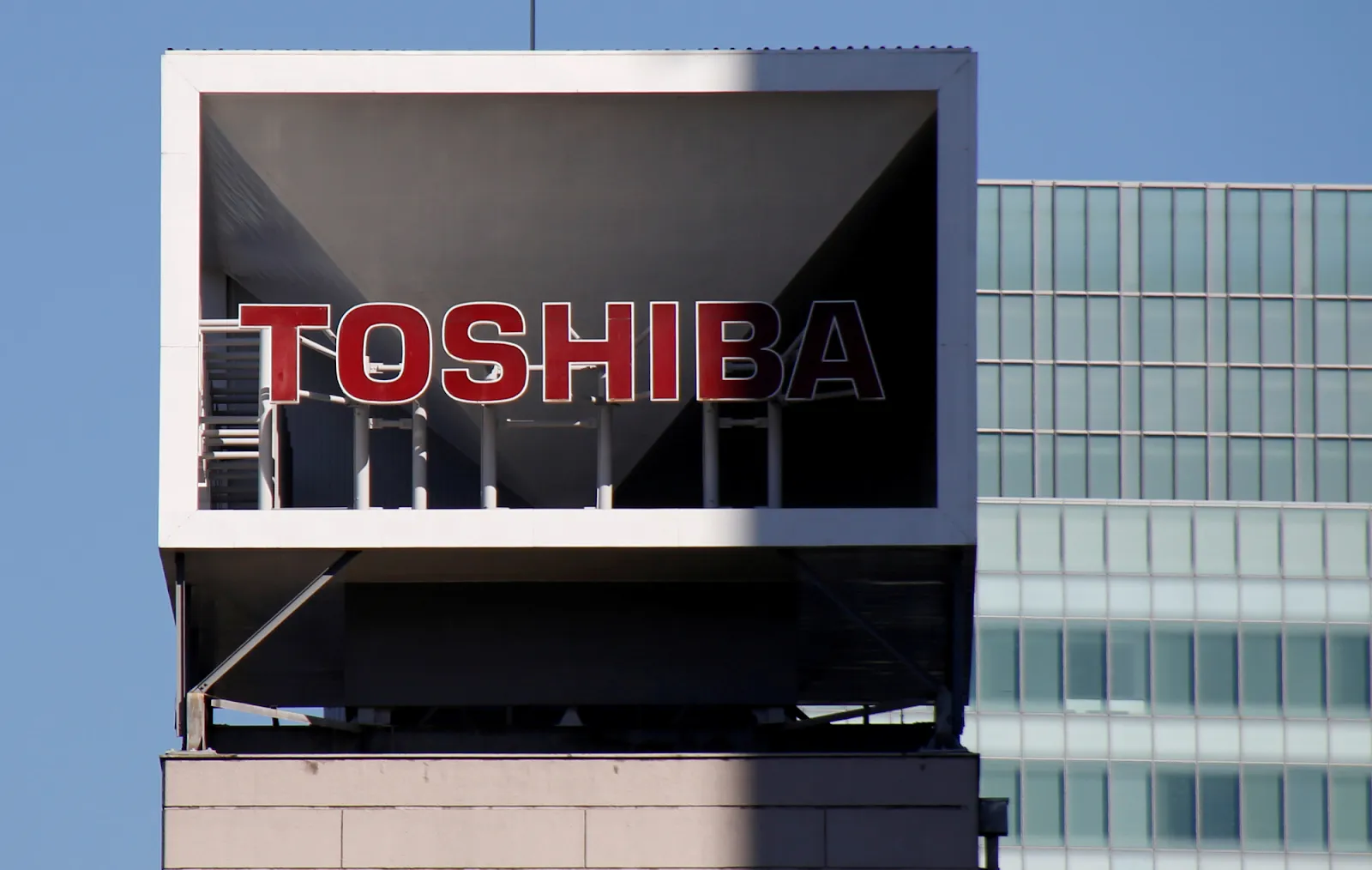Toshiba Corp. was in the middle of a strategic review when activist hedge fund Elliott Management Corp. acquired a significant stake in the company in 2021. The storied Japanese conglomerate has been losing money for over 18 months, private equity firms are bidding at a discount, and a top executive has resigned amid expense scandals.
It's difficult to see what gains have been made so far when it comes to all the talk by hedge funds about the underlying value and the need for change.
Toshiba posted dismal earnings this month: The company's operating income dropped 87.5% for the quarter that ended December, as every segment - from energy systems to printing to infrastructure - struggled to meet expectations. The company explained that the decline is due to a variety of one-time factors, rather than a sustained downward trend. A few of those issues included product warranty issues, goodwill impairment charges, and the impact of a "dramatic change" in the hard-drive market on the company.
The supply-chain problems, including raw material costs and logistics, had a huge impact on the enterprise as well, but it came much later than most other industrial companies had felt the effects of the problems. Toshiba has cut its full-year profit forecast for the year. In addition to the ongoing turmoil within the company, the company's chief operating officer resigned from the company as a result of inappropriate entertainment expense claims that were made while he was a manager with Toshiba Energy Systems in 2019. The internal controls of the company aren't clear from that.
In the meantime, as a result of months of speculation, a consortium led by Japan Industrial Partners, or JIP, has submitted an offer this month to buy out Toshiba at a discounted price to its market value. This consortium is backed by over $9 billion in loans from major Japanese banks and investments from twenty companies. There was a disappointment on the part of shareholders. The leveraged buyout was considered to be one of the most viable options to resuscitate the electronics giant and had attracted foreign heavyweights such as Bain Capital and CVC Capital Partners to try to resurrect the company.
The management was essentially waiting around for deep-pocketed investors to show up with bids while the performance of the business units tanked, and it is unclear why the firm was waiting around for deep-pocketed investors. It is likely that the board of directors had a good deal of insight into how the company's operations were running. Furthermore, the earnings drop was significantly greater than the consensus estimates as well.
Analysts had already begun expressing concerns about Toshiba's segments in June of last year. Little was done to stem the bleeding or heed the warnings.
There has been a tendency among executives to brush off concerns about deteriorating performance. In the latest earnings briefing, Toshiba’s chief financial officer, Masayoshi Hirata, said that despite the current results, the company will not be diverted from its strategic plans, which are focused on long-term value creation for the company.
A lucrative $5.4 billion bailout by activists and foreign investors helped rescue the firm in 2017, but little has been done to improve its operations. Rather than creating real value, Toshiba's market capitalization rose largely due to the optimism surrounding foreign hedge funds and what they might be able to do.
There is no doubt that Toshiba has genuine businesses to offer. Currently, a wide range of industrial products including energy systems, nuclear power semiconductors, and other industrial products are in high demand. There is a real possibility for real returns if the company is restructured and invested properly. It has been the case for the better part of a decade that hedge funds and foreign investors have instead focused on so-called long-term value. As an industrial conglomerate, the process of serving on a board of directors and working through strategic solutions on paper is not the same as running a large company. Theoretically, operational, sector-related experts could have been brought in to dig deeper into performance and to figure out where to eliminate unnecessary expenses.
Currently, the JIP bid is the only option. Shareholders weren't happy with the discounted buyout offer - the stock price dropped. It's nonetheless worth considering what the potential deal means for Toshiba. Chubu Electric Power Co. and Orix Corp., who operate across several sectors, will once again be caught up in the web if the deal goes through. In fact, it looks more like a tangled mess of cross-shareholdings that has been plaguing the country's corporate sector for years. Operation overhaul that is so desperately needed is hard to predict who will bring it about. There may be too many players in the market for Toshiba to stay right where it is right now.
There was a time when Toshiba seemed like it had everything going for it: With Elliott on the board, it got brownie points for good governance, and it spoke a lot about corporate and shareholder value, spin-offs, and the restructuring of the company, making it sound progressive. It looked as if the company was going to be able to make a successful comeback in the future. The company had been faced with a number of crises, including accounting issues, a narrow escape from bankruptcy, and a report that exposed Toshiba's efforts to prevent shareholders from exercising their rights.
After the JIP bid was announced, Akihiro Watanabe, chairman of the board of directors of Toshiba Corporation, wrote a letter to his shareholders blaming the difficult macroeconomic environment for the troubles, stating that he felt "an urgent need" to transform Toshiba. He added that in order to begin moving forward, they need to reach a final conclusion as soon as possible.
It may be too late by then.

Subscribe to our newsletter!
As a leading independent research provider, TradeAlgo keeps you connected from anywhere.








